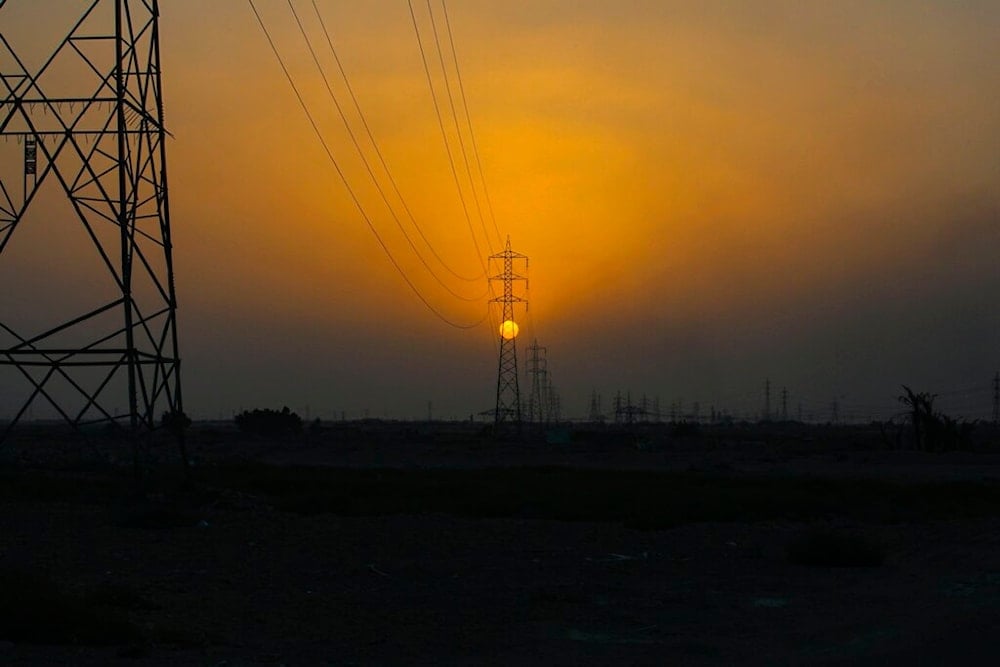Iraq granted new US sanctions waiver to purchase Iranian electricity
The 120-day waiver, renewed on July 11, comes as Iraqis endure power outages, particularly during the stifling summer months.
-

The sun sets behind the transmission lines of electric power from Iran to Iraq in Basra, Iraq, July 29, 2021. (AP)
The United States has given Iraq another four-month sanctions waiver to obtain Iranian electricity, allowing Iran to access the proceeds solely for limited humanitarian trade, a US State Department spokesperson told the Al-Monitor news website.
Since 2018, the US has issued regular waivers to enable Iraq to meet its short-term energy needs without violating American sanctions against Iran while urging Baghdad to reduce its reliance on Iranian natural gas and electricity.
Last week, Iraqi Foreign Minister Fuad Hussein discussed his country’s dependence on US waivers for Iranian energy imports during meetings with Treasury Department officials in Washington.
The 120-day waiver, renewed on July 11, comes as Iraqis endure power outages, particularly during the stifling summer months when temperatures exceed 50 degrees Celsius (120 Fahrenheit) and the demand for air conditioning strains the country’s aging electricity grid.
The State Department spokesperson stated, "Since 2018, the Department has permitted Iraq to purchase Iranian electricity while Iraq develops its domestic generation capacity, continuing a practice from prior administrations."
"Under the terms of the Iraq electricity waiver, no Iranian funds have been released to Iran," the spokesperson told Al-Monitor.
"The funds are held in restricted accounts and can only be used for humanitarian trade and other non-sanctionable transactions."
The news website recalled that previous waivers faced sharp criticism from congressional Republicans, who argue that the arrangement frees up domestic funds for Iran to allegedly spend on "regional terrorism", its nuclear program, and other activities.
In a letter to Treasury Secretary Janet Yellen and Secretary of State Antony Blinken in April, a group of Senate Republicans raised concerns over a provision in recent sanctions waivers that authorizes payments to be deposited into third-country banks rather than accounts inside Iraq.
It is noteworthy that, during his campaign, Iranian President-elect Masoud Pezeshkian pledged to negotiate directly with the United States to lift sanctions that have severely impacted Iran’s economy.
Read more: Iran’s exports to Iraq reach $3Bln in Q1 2024, marking 28% increase

 2 Min Read
2 Min Read








